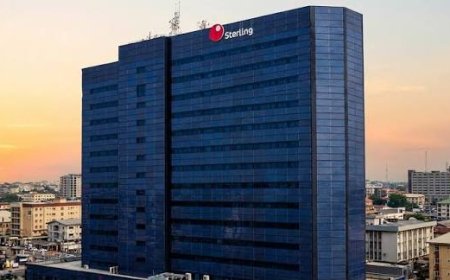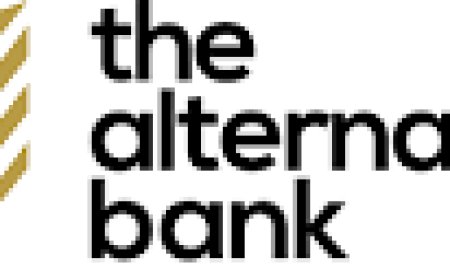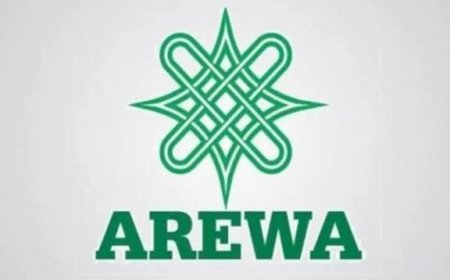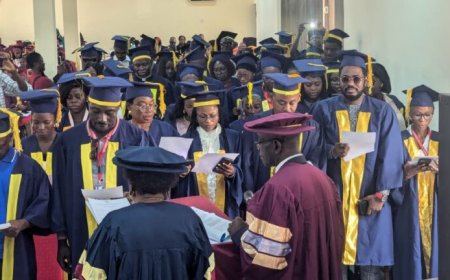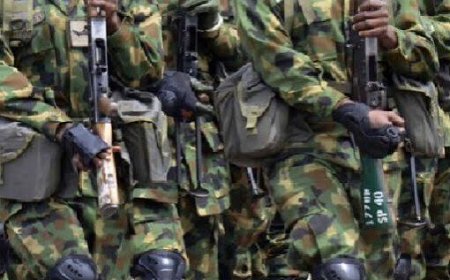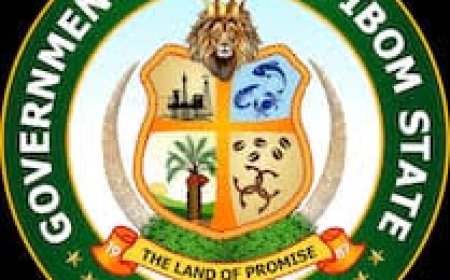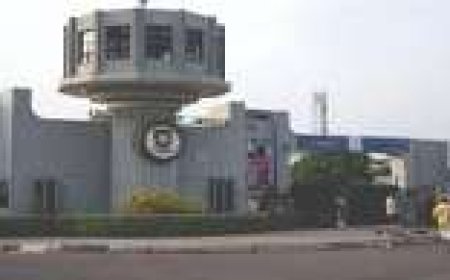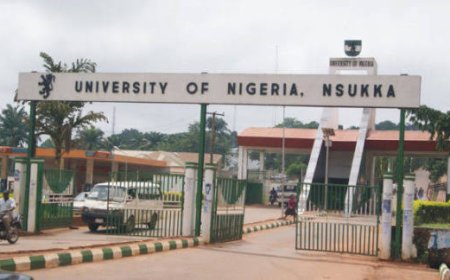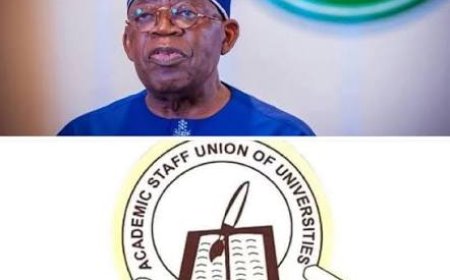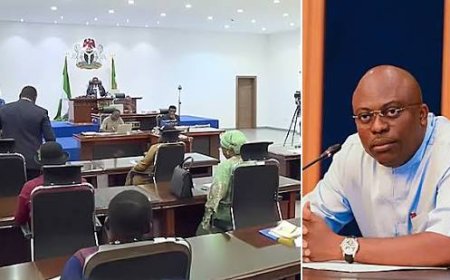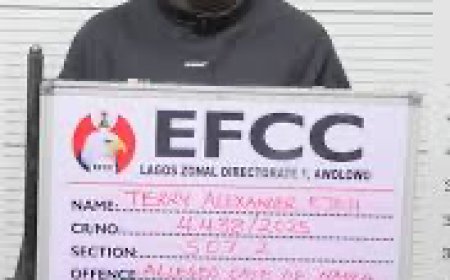Lawyer Sues Enugu Governor, Ministry Over Alleged Rights Violations
...Demands N100 million as damages over unlawful compensation for An Enugu- based legal practitioner and president of the Civil Rights Realisation and Advancement Network, CRRAN, Olu Omotayo, has sued the Enugu State Governor, Peter Mbah and the state Ministry of Transport over alleged human rights violation and continuous violation of the Road Traffic Law by agents of the state In the suit number E/534/2024, Omotayo, leading two other lawyers Hammed Wasiu Adeyemi and Desmond Kakaan, is seeking the determination of the following questions: *Whether by virtue of Section 36(2)(a) of the 1999 Constitution (as amended) and Article 7 (1) (d), of the African Charter on Human and Peoples Rights, (Ratification and Enforcement Act) Cap. A9 Laws of the Federation of Nigeria, 2004, state Ministry of Transport can arrest, prosecute and impose fine on the Plaintiff for violation of road regulation without hearing from the Plaintiff or allowing him to make representation to defend himself. *Whether the state ministry of Transport can lawfully make regulations and impose fine not provided for under the Road Traffic Law in view of the provision of Section 36, Road Traffic Law, Cap 137, Vol. V, Revised Laws of Enugu State of Nigeria,2004, which vested the power in the Commissioner of Police to make Order or by general direction regulate traffic in the state. *Upon the Determination of the above-questions, the Plaintiff shall seek the following reliefs; * A Declaration that the arrest of the Plaintiff on February 13, 2024, and the towing of his vehicle while he was sitting therein to the premises of the ministry of transport by officials of 2nd Defendant popularly refer to as MOT officials, without the Plaintiff committing any offence known to the law constitute a flagrant violation of Section 36(8) and 36(12) of the 1999 Constitution (as amended) and Articles 7(2), of the African Charter on Human & Peoples Rights, (Ratification and Enforcement Act) Cap. A9 Laws of the Federation of Nigeria, 2004, *A Declaration that the arrest, and detention of the plaintiffs’ vehicle and the subsequent imposition of fine on the plaintiff by the defendants without bringing him before a court of competent jurisdiction or allowing him to make representation to defend himself violates the cardinal principle of the right to fair hearing and therefore constitutes a flagrant violation of Section 36(2)(a) of the 1999 Constitution (as amended) and Article 7 (1) (d), of the African Charter on Human & Peoples Rights, (Ratification and Enforcement Act) Cap. A9 Laws of the Federation of Nigeria, 2004. *A Declaration that by virtue of the Road Traffic Law, Cap 137, Vol. V, Revised Laws of Enugu State of Nigeria,2004, the defendant cannot create penalties for offences unknown to the Road Traffic Law Cap 137, Vol. V, Revised Laws of Enugu State of Nigeria, 2004. *Payment of N30,500 being specific damages for unlawful seizure of the plaintiff's vehicle. * Payment of N100 million as general damages against the defendants jointly and severally for trespass to person, unlawful arrest and detention and subjecting the plaintiff to psychological torture and degrading treatment. Omotayo had in his argument in support of the application submitted that the state government violated his constitutional right to fair hearing through its officials and their agents for them to effect an arrest, prosecute and also be the judge who impose penalty on the arrestee. He further argued that the 2nd defendant cannot lawfully make regulations and impose fine under the Road Traffic Law in view of the provision of Section 36, Road Traffic Law, Cap 137, Vol. V, Revised Laws of Enugu State of Nigeria, 2004, which vested the power in the Commissioner of Police to make Order or by general direction regulate traffic in the state. Omotayo further argued that faded traffic line or marks on the road did not conform with international standard as stipulated by Section 34, Road Traffic Law, Cap 137, Vol. V, Revised Laws of Enugu State of Nigeria, 2004, which states that “Traffic signs shall when necessary conform to any international requirement relating thereto and in default of such requirement shall be of such size, color and type as may be prescribed”. He also, submitted that the faded traffic mark at the scene of his arrest did not conform to international standard, as the provisions of this law does not connote the use of faded traffic mark on the road purposely for the purpose of setting trap for motorists in order to extort money from them by agents of the defendants.

*Whether the state ministry of Transport can lawfully make regulations and impose fine not provided for under the Road Traffic Law in view of the provision of Section 36, Road Traffic Law, Cap 137, Vol. V, Revised Laws of Enugu State of Nigeria,2004, which vested the power in the Commissioner of Police to make Order or by general direction regulate traffic in the state.
*Upon the Determination of the above-questions, the Plaintiff shall seek the following reliefs;
* A Declaration that the arrest of the Plaintiff on February 13, 2024, and the towing of his vehicle while he was sitting therein to the premises of the ministry of transport by officials of 2nd Defendant popularly refer to as MOT officials, without the Plaintiff committing any offence known to the law constitute a flagrant violation of Section 36(8) and 36(12) of the 1999 Constitution (as amended) and Articles 7(2), of the African Charter on Human & Peoples Rights, (Ratification and Enforcement Act) Cap. A9 Laws of the Federation of Nigeria, 2004,
*A Declaration that the arrest, and detention of the plaintiffs’ vehicle and the subsequent imposition of fine on the plaintiff by the defendants without bringing him before a court of competent jurisdiction or allowing him to make representation to defend himself violates the cardinal principle of the right to fair hearing and therefore constitutes a flagrant violation of Section 36(2)(a) of the 1999 Constitution (as amended) and Article 7 (1) (d), of the African Charter on Human & Peoples Rights, (Ratification and Enforcement Act) Cap. A9 Laws of the Federation of Nigeria, 2004.
*A Declaration that by virtue of the Road Traffic Law, Cap 137, Vol. V, Revised Laws of Enugu State of Nigeria,2004, the defendant cannot create penalties for offences unknown to the Road Traffic Law Cap 137, Vol. V, Revised Laws of Enugu State of Nigeria, 2004.
*Payment of N30,500 being specific damages for unlawful seizure of the plaintiff's vehicle.
* Payment of N100 million as general damages against the defendants jointly and severally for trespass to person, unlawful arrest and detention and subjecting the plaintiff to psychological torture and degrading treatment.
Omotayo had in his argument in support of the application submitted that the state government violated his constitutional right to fair hearing through its officials and their agents for them to effect an arrest, prosecute and also be the judge who impose penalty on the arrestee.
He further argued that the 2nd defendant cannot lawfully make regulations and impose fine under the Road Traffic Law in view of the provision of Section 36, Road Traffic Law, Cap 137, Vol. V, Revised Laws of Enugu State of Nigeria, 2004, which vested the power in the Commissioner of Police to make Order or by general direction regulate traffic in the state.
Omotayo further argued that faded traffic line or marks on the road did not conform with international standard as stipulated by Section 34, Road Traffic Law, Cap 137, Vol. V, Revised Laws of Enugu State of Nigeria, 2004, which states that “Traffic signs shall when necessary conform to any international requirement relating thereto and in default of such requirement shall be of such size, color and type as may be prescribed”.
He also, submitted that the faded traffic mark at the scene of his arrest did not conform to international standard, as the provisions of this law does not connote the use of faded traffic mark on the road purposely for the purpose of setting trap for motorists in order to extort money from them by agents of the defendants.
What's Your Reaction?







